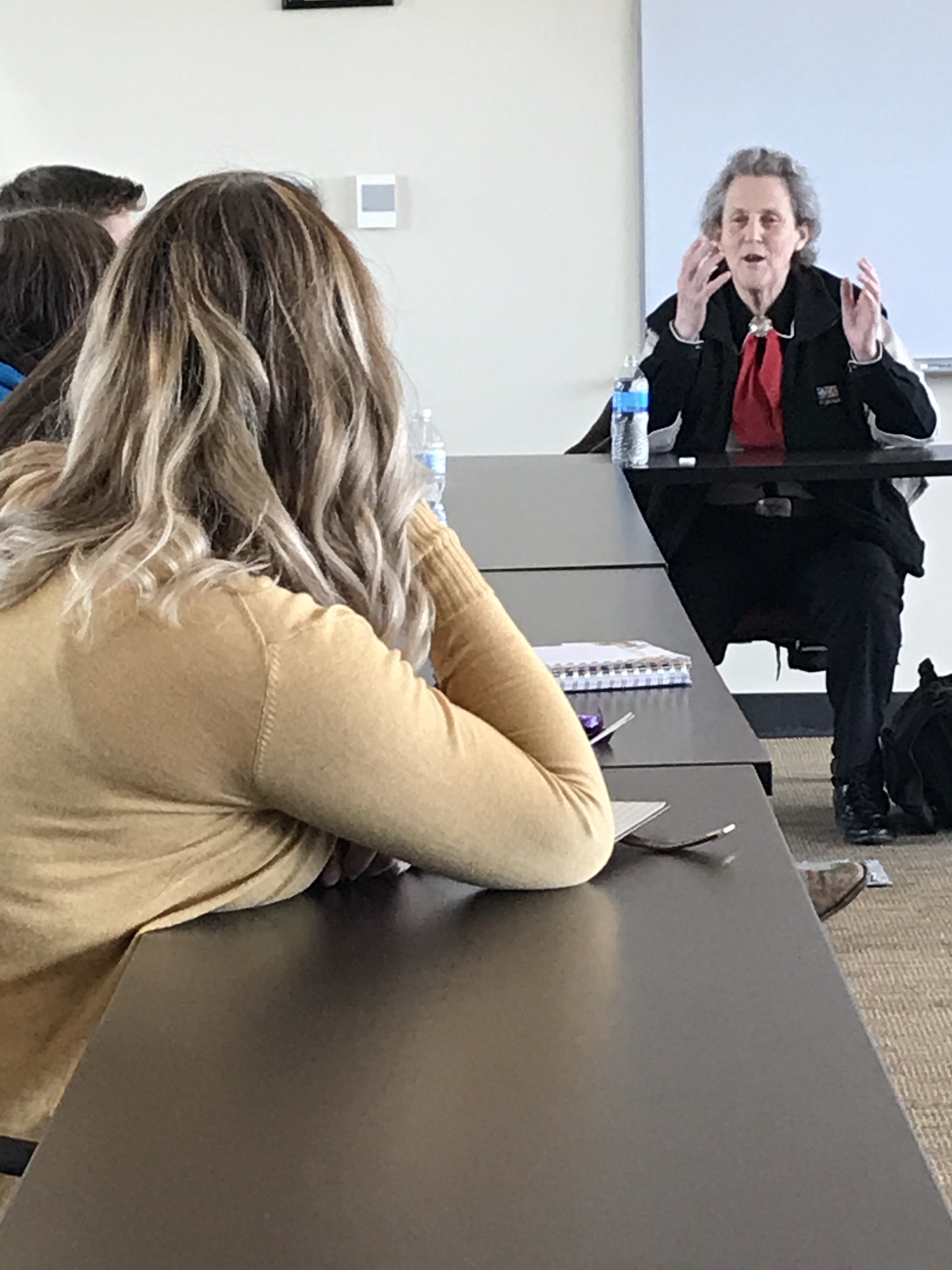By Kay Wilson
Dr. Temple Grandin, a Colorado State University animal science professor and a prolific author of books dealing with today’s education, delivered a James H. Lemon lecture on February 15 at Northwest Missouri State University.
The lecture, held in the Ron Houston Center for Performing Arts Mary Linn Auditorium, was titled “Developing Individuals Who Have Different Kinds of Minds.” Grandin, who was diagnosed with autism at age two, issued a challenge to the audience, which had several area educators and Northwest education majors, to value the minds of children and youth who see the world differently.
She explained that her life changed when she moved as a pre-teen to live with her aunt on an Arizona ranch. Another mentor in her life was her high school science teacher, who motivated her to become a scientist. This path led her to earn a master’s degree in animal science from Arizona State and her doctorate in the same field from the University of Illinois.
Grandin is known globally for her extensive research with several livestock species handling equipment and slaughter facilities. Her book “Animals in Translation” was a New York Times best seller.
While in Maryville, she visited the university’s RT Wright Farm, noting that the dairy operation was outstanding. She also shared her amazement with Northwest’s Leet Center for Children and Families, telling of her thrill watching three- and four-year-olds creating “cool stuff out of old computer parts,” allowing the children to develop practical skills through the hands-on exercise.
She challenged the educators at the center to share these activities through YouTube for others to see the children’s learning excitement.
Grandin gave her perspective of the NASA event that was captured in the movie “The Right Stuff.” She said the nerds built that rocket. She explained there are avenues for all children to learn, remembering that in her youth she was good at art, music and science, but not algebra. She sees algebra as useless in the world. It is important for children to have “decent” writing skills, and internships during the teen years should be a priority.
More than 11 books have been written and DVDs produced by Grandin about her life overcoming sensory issues and other aspects of being on the autism spectrum.
She said that grandparents are sometimes surprised to discover when their grandchildren are diagnosed with autism, that they too may have had the condition at a younger age. The difference is, she said, that in the 1950s and ‘60s, children had jobs, whether a paper route, walking the neighbor’s dog or, like herself, in construction and roofing. They were also placed in settings where they honed their social skills, formally taught by parents or clubs.
Between developing hands-on skills and self-esteem through socialization, the child was taught discipline and responsibility.
During her evening remarks, she noted there have been some well-known inventors, scientists and successful businesspeople who were diagnosed with behavior maladies as children, including Jane Goodall, Thomas Edison, Steve Jobs and Steven Spielberg.
Grandin shared axioms that she wanted each of her audience members to recall throughout their life experiences:
• Big is fragile, not bad.
• Don’t make bad the new normal.
• People want the ‘thing’ not the know-how to manage.
While speaking with Northwest agriculture students and local cattlemen, Grandin was asked to remember her first visit to Maryville. In the 1970s, she addressed several cattlemen at an event held in the Merrigan Brothers Auction barn, currently known as United Producers, Inc., rail cow and bull collection site.
She spoke about the critical control points that can be measured when handling livestock. She told of the recent improvements in the livestock slaughter industry, mainly due to corporate demands from giants like McDonald’s and Wendy’s.
She warned of over-selection in genetics, noting the extreme Arabian horse and some dog breeding as flawed science. She also warned about feedlot cattle that are mouth-breathers, which indicates heat stress, and that some are pushing the cattle too hard, creating lameness.
Dr. Grandin said during the press conference that she is traveling quite extensively. According to her website, the following day, February 16, she spoke at an autism conference in Kansas City, KS, and later on March 30 she will be at another conference in Pittsburgh, PA.




Facebook Comments